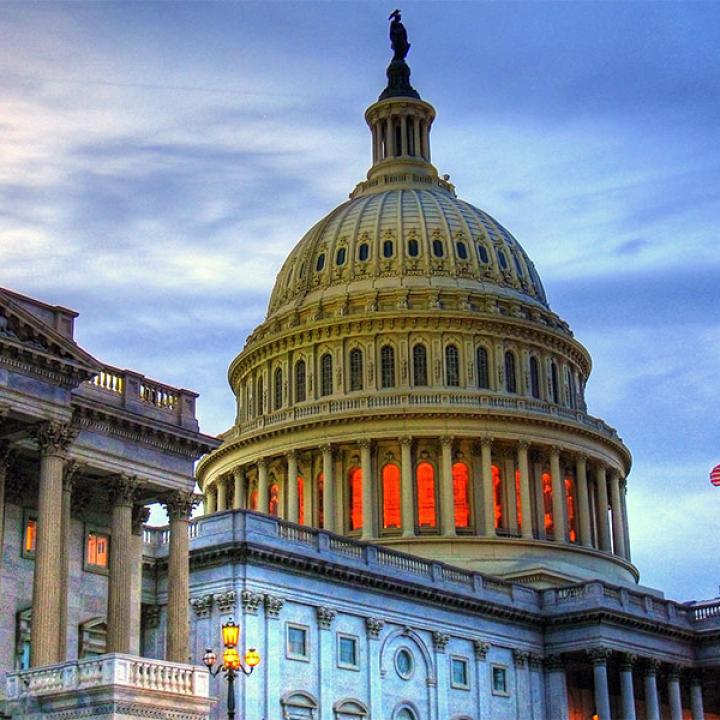
- Policy Analysis
- Congressional Testimony
Hezbollah's Growing Threat Against U.S. National Security Interests in the Middle East

In-depth testimony on the group's ongoing criminal, terrorist, and military activity in the region and beyond, including the implications of a potential cash influx from Iran as international sanctions are relaxed.
The following is an excerpt from Dr. Levitt's prepared remarks. To read his full testimony, download the PDF.
Despite the Iran deal, or perhaps because of it, Hezbollah continues to present a significant threat to U.S. interests both in the Middle East and, as events in Europe and South America indicate, closer to home. Iran is Hezbollah's primary benefactor, giving the Lebanese political party and militant group some $200 million a year in addition to weapons, training, intelligence, and logistical assistance. For about eighteen months prior to the nuclear deal, however, Iran had cut back its financial support to Hezbollah -- a collateral benefit of the unprecedented international sanctions regime targeting Iran's nuclear program, as well as the fall in oil prices.
The cutback mostly curtailed Hezbollah's political, social, and military activities inside Lebanon. Its social-service institutions had to cut costs, employees received paychecks late or were laid off, and funding for civilian organizations, such as the group's satellite television station, al-Manar, was reduced. By contrast, Hezbollah's Syria command, which has been a priority for Tehran given its commitment to defending Bashar al-Assad's regime, showed no sign of financial hardship even then.
Increased Iranian spending in the wake of the Iran deal is likely to benefit Hezbollah's regional and international operations. The group is no longer limited to jockeying for political power in Lebanon and fighting Israel. With more money, it should be expected to step up its aid to Shiite militias in Iraq and Yemen in cooperation with Iran, sending small numbers of skilled trainers to bolster local forces and, in some cases, fight alongside them. In Iraq, Hezbollah is training and fighting with Shiite militias, and that will likely expand. Though they are fighting on behalf of the government, their tactics exacerbate sectarian tensions. In Yemen, Hezbollah's footprint is small, but it could expand with additional resources. The group is already trying to find long-term support for these operations, such as investments in commercial front organizations in Iraq.
Finally, increased funding could help Hezbollah reconstitute its capabilities beyond the Middle East as well. Hezbollah is busier than ever, especially in Syria, where it is engaged in expensive militant operations and support activities. Meanwhile, the group has expanded its regional activities further afield, straining its coffers even as it has had to cut back its activities in Lebanon. A newly enriched Hezbollah should be expected to act more aggressively at home and abroad, challenging less-militant parties across the Lebanese political spectrum and boosting its destabilizing activities outside Lebanon. And at a time when Iran may not want to be seen engaging directly in activities that could undermine the nuclear deal, the likelihood increases that it will rely still more on the reasonably deniable activities of its primary terrorist proxy organization, Hezbollah.
The good news is that U.S. law enforcement has been proactively targeting Hezbollah criminal activities worldwide. Working closely with law enforcement agencies, the Treasury Department has not only picked up the pace of its Hezbollah designations but also taken the financial fight to Beirut, where Hezbollah has until recently banked with impunity. Now armed with the Hezbollah International Financing Prevention Act, U.S. agencies truly are empowered to "thwart" the group's "network at every turn" by imposing sanctions on financial institutions that deal with Hezbollah or its al-Manar television station.
At the same time, through the Counterterrorism Partnership Fund (CTPF) the State Department has launched an international initiative to raise awareness about Iran and Hezbollah's broad range of terrorist and criminal activities around the world, and to increase law enforcement cooperation and coordination among a wide range of countries to counter these activities. The U.S. co-led the Law Enforcement Coordination Group with Europol focused on Hezbollah's illicit activities, and regional capacity building workshops were held in South America, Eastern Europe, West Africa, and Southeast Asia, all focused on improving local countries' ability to detect and prosecute Hezbollah's terrorist and criminal activities in their regions.
And Hezbollah has taken notice. Leader Hassan Nasrallah gave lengthy televised addresses in July and December 2015, focused not on the group's battlefield losses in Syria, but on denying that Hezbollah engages in commercial activities and declaring "unjust" charges that it has ties to drug trafficking and money laundering. The vehement denials were a response to intensifying efforts by the United States and key allies to target the group's wide-ranging international organized criminal activities.
Nasrallah further lamented that when the United States accuses people or businesses of having ties to Hezbollah, Lebanese banks actually "take measures" against those people or the accounts of their entities. Investigators have pursued so many Hezbollah-related cases in recent years that the group can no longer pretend to ignore them. The trail has led to the inner circle of Hezbollah's leadership, including Abdullah Safieddine, the group's representative to Iran and a cousin of Mr. Nasrallah.
In his December speech, Nasrallah challenged his accusers: "Bring me the evidence!" The United States and partner countries are doing just that, with great effect.
Matthew Levitt is the Fromer-Wexler Fellow and director of the Stein Program on Counterterrorism and Intelligence at The Washington Institute.
House Foreign Affairs Subcommittee on the Middle East and North Africa



